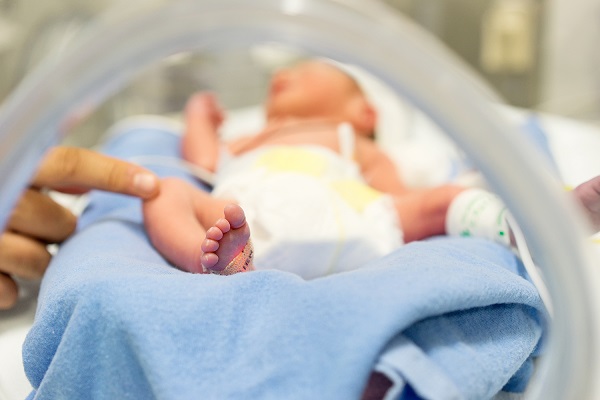
Awareness of preterm birth: Why wait till November?
Last Thursday, November 17, Ghana joined the rest of the world to mark World Prematurity Day, a day set aside to raise awareness of the challenges and burden of preterm birth.
The term ‘preterm babies’ refers to babies born prematurely before the end of the full term of gestation, especially before 37 weeks of pregnancy is completed.
This year’s commemoration of the day was on the theme: “A parent’s embrace: A powerful therapy. Enable skin to skin contact from the moment of birth”.
It emphasised the important role Kangaroo Care, a skin-to-skin contact between the newly born baby and the mother, father or primary care givers, plays in preventing low body temperature (hypothermia) and the overall development of preterm babies.
At an event in Ho to mark the day, a Senior Lecturer at the School of Nursing and Midwifery at the University of Ghana, Dr Lillian Akorfa Ohene, said out of the about 128,000 babies born prematurely each year, approximately 8,400 died before they turned five.
This figure excludes the many cases of disabilities and life-threatening ailments that occur in children as a result of being born too early.
The figures from the Ho event are alarming, but, sadly, they have become ‘songs’ sang usually in November when the day is commemorated globally.
In 2012, the Global Action Report on Preterm Birth indicated that about 111,500 babies, constituting 14.5 per cent of live births recorded in Ghana in 2010, were preterm births. Out of that number, 7,800 died from preterm complications.
According to medical experts, because preterm babies were born before their lungs, brains and other organs were well developed, they were highly vulnerable to infections, which cause their death.
Although preterm babies are vulnerable, health experts assert that about 75 per cent of deaths among them are preventable, and that teaching health workers, mothers and primary caregivers how to handle these babies has proved to be effective in reducing deaths and some complications.
Also, health facilities must be well-resourced to provide quality emergency obstetric and newborn care for such babies before they are referred to bigger facilities, if need be.
Having preterm babies does not only increase the financial burden on families but also affects the psychological, emotional and physical well-being of those families.
Affected families must, therefore, be counselled and supported to take care of the babies during treatment and after discharge.
The Daily Graphic is happy that fathers are being encouraged to also play active roles via the skin-to-skin care for positive emotional and physical bonding with their newborns.
We agree with Dr Ohene’s assertion that respect for affected parents’ right to information and consent in all treatment and interventions and inviting them to participate in medical rounds are powerful tools to make them ready to provide the required embrace for their children.
Although some causes of preterm births are unavoidable, comprehensive family planning, increased empowerment of women, especially adolescent girls, and improved quality of care before, during and after pregnancy are some recommendations made by health experts to help reduce cases of preterm births.
Meanwhile, it is sad to know that in some parts of the country, preterm birth and its complications are still seen as taboo and clothed in superstition, making it difficult for families with such experiences to seek help at health facilities.
The Daily Graphic believes that we must not wait till November every year before highlighting preterm births and their complications. Rather, they must be part of consistent campaigns to help reduce the regrettable number of newborn deaths recorded each year.
The target of reducing neonatal deaths set in the Ghana’s Newborn Care Strategy and Action Plan and the SDG target of ending preventable newborn and child deaths by 2030 cannot be met without reducing preterm deaths.
